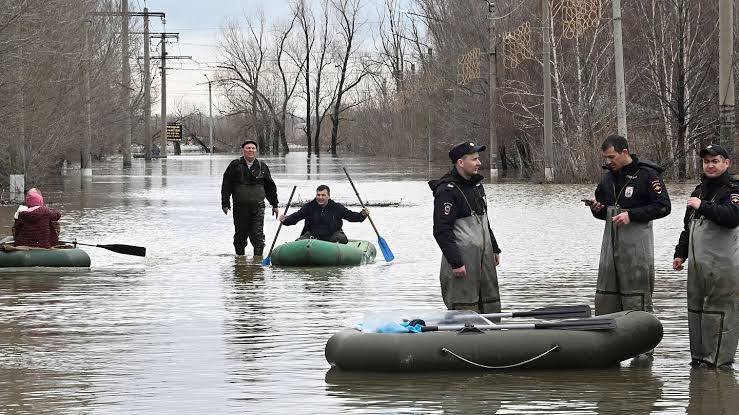Kazakhstan, Russia grapple with severe flooding crisis

A significant portion of Russia and Kazakhstan finds itself inundated by massive floods, with water levels in overflowing rivers still on the rise, particularly in the southern Urals and western Siberia regions. Both countries have declared the floods as the worst in decades, prompting the implementation of a state of emergency as cities and villages struggle to cope with the deluge.
The staggering scale of the disaster has forced the evacuation of more than 90,000 people, predominantly in Kazakhstan, where the situation remains dire. Despite the enormity of the crisis, President Vladimir Putin has, thus far, refrained from visiting the affected areas, although both nations have pledged to collaborate in addressing the unfolding catastrophe.
According to official statements from the Kazakh government, over 86,000 individuals have been rescued and evacuated since the onset of the floods. Temporary housing has been provided to 8,472 evacuees, with the remainder accommodated in safe community spaces. Additionally, efforts have been made to safeguard approximately 81,000 animals affected by the disaster across five regions in Kazakhstan.
Meanwhile, in Russia, more than 6,500 individuals have been evacuated, primarily from the Orenburg region, where the situation is particularly dire. The swelling Ural and Tobol rivers pose imminent threats to population centers like Orenburg and Kurgan, with the former already experiencing extensive flooding, and the latter bracing for an unprecedented inundation expected on Wednesday.
The gravity of the situation has prompted warnings of forced evacuations in Orenburg if residents fail to comply with directives from authorities. Russian Emergency Situations Minister Alexander Kurenkov has been actively assessing the crisis, surveying flood-affected areas via aerial reconnaissance and coordinating response efforts on the ground.
Despite assurances from the Kremlin that President Putin remains actively engaged in addressing the crisis, his decision not to physically visit the disaster zones has drawn criticism, with some residents staging rare protests demanding governmental support and compensation. Critics, including members of the opposition, have lambasted Putin’s absence from the affected regions, emphasizing the need for a more robust and visible leadership response to the unfolding humanitarian crisis.












